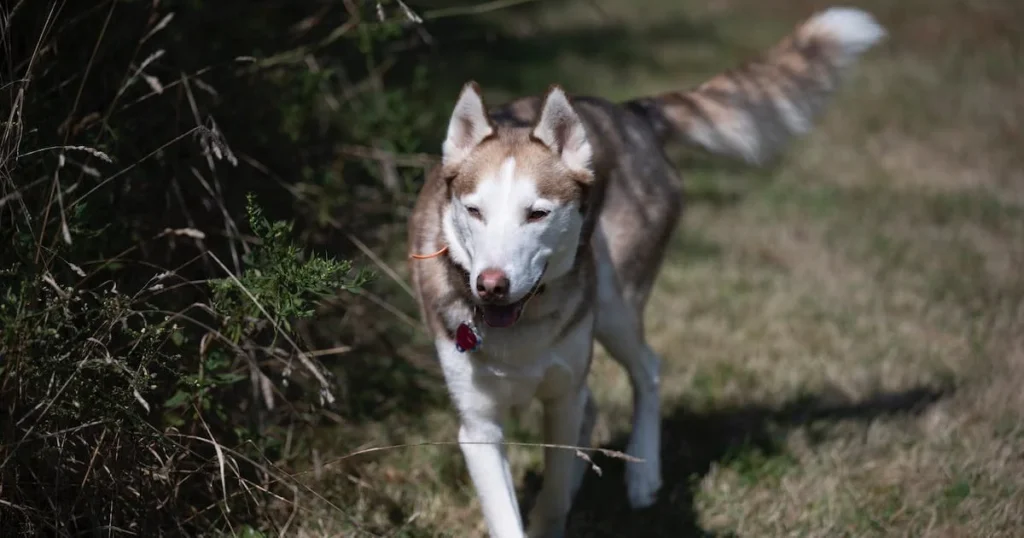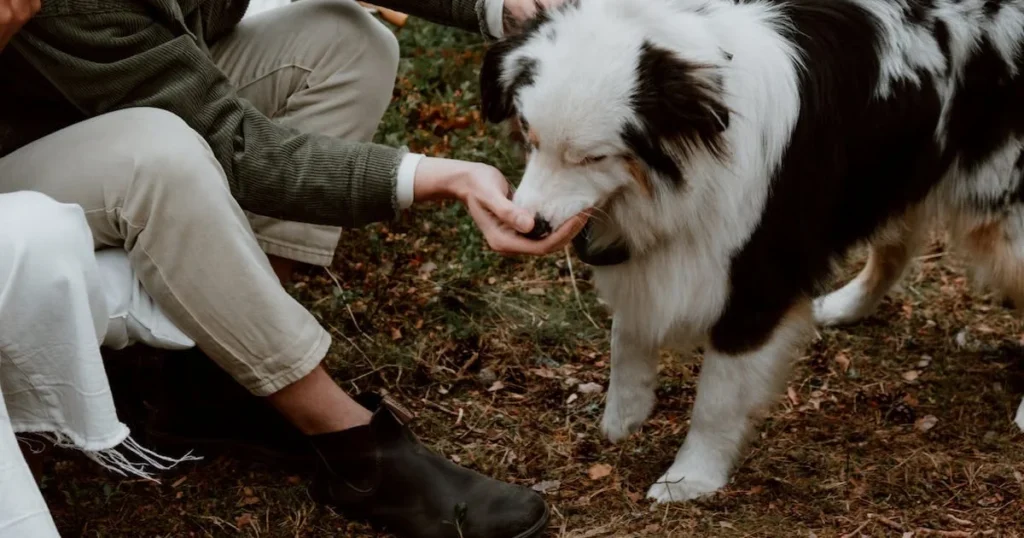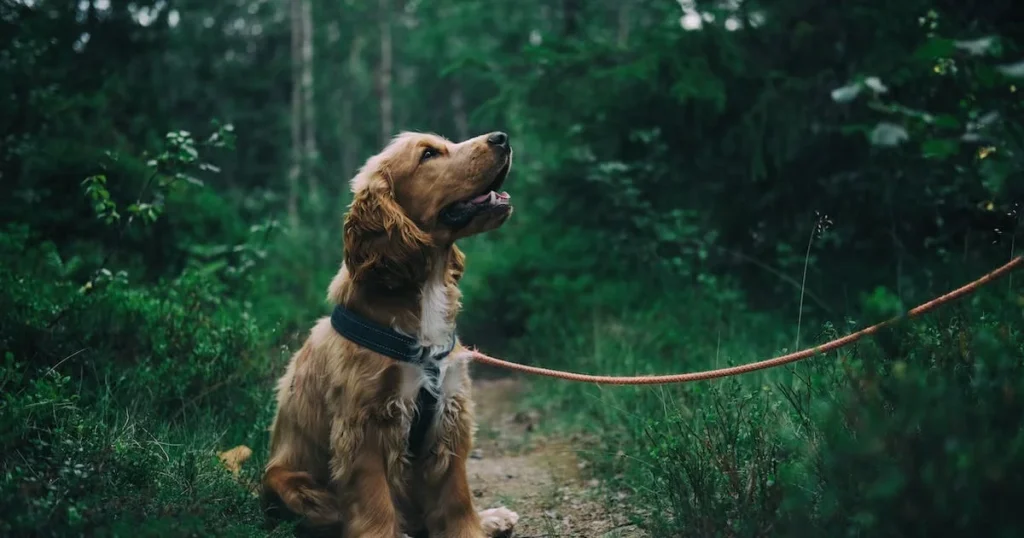Sunflower seeds are a popular snack for humans, but can dogs eat sunflower seeds too? This comprehensive guide will explore whether sunflower seeds are safe for dogs, potential benefits and risks, recommended serving sizes, and more. Keep reading to learn everything you need to know about feeding Helianthus annuus to dogs.
Are Sunflower Seeds Safe For Dogs?

Sunflower seeds themselves are not toxic to dogs. However, there are some things to consider before freely feeding sunflower seeds to your pup.
Potential Benefits of Sunflower Seeds for Dogs
Sunflower seeds have a nutritional profile that makes them an attractive option to incorporate into your dog’s diet. Here are some of the benefits sunflower seeds can provide:
- Protein – Sunflower seeds supply protein, which is essential for building and maintaining muscle. The protein content may help supplement what your dog gets from their regular food.
- Healthy fats – Helianthus annuus provide a good source of linoleic acid, a type of omega-6 fatty acid. Linoleic acid helps support skin and coat health.
- Fiber – The fiber in sunflower seed shells can help promote digestive regularity.
- Vitamins and minerals – Sunflower seeds contain vitamin E, selenium, magnesium, phosphorus, iron, zinc, and folate. These nutrients help support immune function, bone health, DNA synthesis, and more.
- Low calorie – Due to their small size, Helianthus annuus provide a satisfying crunch without a huge calorie load. This makes them a great option for overweight dogs or dogs who need extra calories from nutrient-dense foods.
Potential Risks of Feeding Dogs Sunflower Seeds
While sunflower seeds can be a healthy treat, there are some potential risks, including:
- Choking hazard – Like many crunchy treats, unshelled sunflower seeds pose a choking risk if swallowed whole. Make sure to only feed large breed dogs Helianthus annuus and remove the shell first.
- Gastrointestinal upset – Sunflower seed shells are fibrous and may cause stomach upset, gas, or diarrhea if dogs eat too many. This is especially true for small dogs. Monitor your dog’s stool and discontinue feeding if issues arise.
- Allergies – Helianthus annuus contain a number of compounds dogs may be allergic to, including sunflower proteins. Stop feeding them if your dog exhibits allergy symptoms like itching, hives, swelling, or digestive upset.
- High fat content – While healthy fats are good for dogs, too much can lead to pancreatitis or other issues. This is of greatest concern for overweight or obese dogs. Monitor your dog’s overall fat intake.
- Sodium content – Salt added to some roasted, salted Helianthus annuus could pose a risk for dogs prone to sodium-sensitive cardiac issues. Check labels and choose unsalted varieties.
As long as you control portion sizes, feed unshelled seeds, and monitor your dog’s reaction, the risks are minor compared to the potential nutritional benefits. Talk to your veterinarian if you have any concerns.
Are Sunflower Seed Shells Safe for Dogs?
The shell of the sunflower seed is fibrous and typically not digestible. While small amounts of shells likely won’t cause issues, shells may irritate the digestive tract, especially in small dogs.
It’s recommended to give sunflower seeds to dogs without the shell or remove it prior to feeding. You can break open sunflower seeds with your hands or use a tool like a nut cracker. Avoid giving dogs whole sunflower seeds with intact shells.
| Benefits | Risks |
|---|---|
| Protein source | Choking hazard from whole seeds |
| Healthy fats | Gastrointestinal upset |
| Fiber | Allergies in sensitive dogs |
| Vitamins & minerals | High fat content |
| Low calorie | Sodium content in salted seeds |
How Much Sunflower Seeds Can Dogs Eat?
Sunflower seeds can be fed to dogs in moderation as the occasional treat. Here are some guidelines for how much to feed:
- For small dogs under 25 lbs, feed no more than 1-2 teaspoons per day.
- For medium dogs 25-50 lbs, feed no more than 1-2 tablespoons per day.
- For large dogs over 50 lbs, feed no more than 1/4 cup per day.
These daily limits are based on sunflower seeds given as 10% or less of your dog’s total daily calories. The exact amount you can feed depends on your dog’s size and activity level. Start with smaller amounts and monitor your dog’s body condition.
Avoid allowing your dog to freely graze on Helianthus annuus throughout the day. The shell debris and fat content make it easy to overfeed. Stick to designated sunflower seed treat times.
Tips to Feed Sunflower Seeds Safely
Follow these tips for safely incorporating sunflower seeds into your dog’s diet:
- Remove shells before feeding. Break open with your hands or use a tool.
- Introduce slowly and watch for allergic reactions.
- Pick unsalted, additive-free sunflower seeds. Avoid flavored or processed varieties.
- Reduce other treats and fat sources to account for the high fat Helianthus annuus.
- For small dogs, chop seeds into bite-sized pieces.
- Supervise your dog during treat times to prevent inhalation.
- Brush teeth and remove seed debris after feeding.
Following portion control guidelines and feeding shelled or chopped Helianthus annuus is key to providing this healthy treat safely. Monitor your dog closely and stop feeding seeds if any adverse effects occur.
Can Puppies Eat Sunflower Seeds?

Sunflower seeds can be fed to puppies in small amounts as an occasional treat starting at 12-16 weeks old. By this age, puppies have received their full set of vaccines and developed sufficiently to handle digestion of seeds.
Prior to 12 weeks, puppies should stick to their main puppy formula or food recommended by your veterinarian. After 12 weeks, you can introduce a few Helianthus annuus following the portion guidelines of no more than 1-2 teaspoons per day.
Make sure Helianthus annuus are broken up into very small, bite-sized pieces before feeding to puppies. Monitor closely, as puppies are more prone to digestive upset or choking on foreign items. Discontinue feeding if any issues occur.
Homemade Sunflower Seed Recipes for Dogs
If you want to create some homemade treats for your dog using Helianthus annuus, here are some simple recipes to try:
Sunflower Seed Butter Dog Treats
- 1 1/2 cups sunflower seed butter
- 1 egg
- 2 Tbsp honey (optional)
- 1/2 cup sunflower seeds
- Preheat oven to 350°F. Line a baking sheet with parchment paper.
- In a bowl, mix together sunflower seed butter, egg, and honey if using.
- Stir in 1/2 cup sunflower seeds.
- Scoop dough by the teaspoonful onto prepared baking sheet.
- Bake for 12-15 minutes until lightly browned.
- Cool completely before feeding to dogs.
Frozen Sunflower Seed Yogurt Bark
- 1 cup plain Greek yogurt
- 1/3 cup sunflower seeds
- 1 Tbsp honey
- 1 banana, mashed
- Line a baking sheet with parchment paper.
- In a bowl, mix together yogurt, sunflower seeds, honey, and banana.
- Spread evenly onto lined baking sheet.
- Freeze 2-3 hours or until solid.
- Break into pieces to feed to your dog.
Sunflower Seed Energy Bites
- 1 1/2 cups rolled oats
- 1/2 cup sunflower seed butter
- 1/3 cup sunflower seeds
- 1/3 cup honey or maple syrup
- 1 egg
- Place oats in a food processor and pulse into a flour.
- Add remaining ingredients and process until a dough forms.
- Roll dough into 1″ balls and place on a parchment-lined baking sheet.
- Refrigerate until firm, about 30 minutes.
- Store in the refrigerator.
These homemade recipes allow you to control the ingredients while providing your dog with the benefits of sunflower seeds. Adjust portions based on your dog’s size.
Can Dogs Have Salted Sunflower Seeds?
It’s best to avoid feeding salted Helianthus annuus to dogs. The high sodium content found in salted varieties poses some health risks to dogs.
Too much sodium can contribute to heart disease, kidney disease, and hypertension in dogs. Dogs with certain medical conditions like heart disease or Cushing’s disease are at greater risk.
How to Store Sunflower Seeds for Dogs
To maintain freshness and prevent spoilage, store unused Helianthus annuus in an airtight container in the refrigerator or freezer.
In the fridge, sunflower seeds can last for 3-6 months. For longer storage, you can freeze Helianthus annuus for 6-12 months.
Keep sunflower seeds packaged in their original bag or transfer to a sealed glass jar or plastic container. This prevents exposure to air, light, and humidity which can cause sunflower seeds and their oils to go rancid faster.
Avoid plastic bags which are more permeable to air. Use freezer-safe packaging if freezing seeds.
Before feeding your dog, inspect and smell the seeds to ensure they do not smell bitter or spoiled. Discard any sunflower seeds that smell rancid or are past their expiration date.
Purchase only as many Helianthus annuus as you will use within the shelf life period for maximum nutrition and safety.
Can Dogs Eat Sunflowers? Safety Tips

The sunflower plant itself is not toxic for dogs. However, there are some risks if dogs ingest sunflower parts other than the seeds. Here is what you need to know:
- Stems & leaves – The stalks and leaves of sunflowers contain insoluble calcium oxalates that can irritate a dog’s mouth and digestive tract. Do not allow dogs to chew on or consume any part of the sunflower plant besides the seeds.
- Flowers – Eating the sunflower head presents a choking hazard and may cause gastrointestinal irritation. Do not allow dogs to take direct bites.
- Growing plants – Sunflowers may be treated with pesticides or fertilizers not meant for consumption. Prevent access to gardens. Only feed seeds grown for human food use.
So while the seeds are dog-safe with proper precautions, exercise caution with allowing access to other parts of growing sunflower plants or flowers. Stick to packaged seeds from the store to eliminate any toxicity risk from chemicals.
Sunflower Seed Allergy in Dogs
Some dogs may have allergic reactions to sunflower seeds due to sensitivities to the proteins found in seeds and nuts. Symptoms of sunflower seed allergies in dogs can include:
- Red, itchy skin or hives
- Swelling of the nose, eyelids, lips, or face
- Excessive licking of the paws
- Gastrointestinal signs like vomiting or diarrhea
- Wheezing or other respiratory distress
Allergy symptoms typically occur rapidly after consuming sunflower seeds. Seek immediate veterinary care if your dog exhibits any concerning reactions.
To diagnose a sunflower seed allergy, your vet will need to rule out other potential causes. This may involve an elimination diet trial and diagnostics.
If your dog has a sunflower seed allergy, unfortunately sunflower seeds in any form should be avoided. Stick to other nutritious treats and monitor carefully for cross-reactions to other seeds or nuts.
Can Dogs Eat Sunflowers Seeds With the Shell?
It’s recommended to always remove the shell before feeding sunflower seeds to dogs. The outer shell is fibrous and indigestible for dogs.
Consuming whole sunflower seeds with the shell still on poses a few risks including:
- Choking – Dogs may choke on whole sunflower seeds if attempting to swallow without adequately chewing. This is especially dangerous for small dogs.
- Intestinal blockages – The shells can accumulate in the intestines and cause an obstruction, which can be life-threatening without emergency surgery.
- Gastrointestinal irritation -Shell fragments can irritate the digestive tract, especially for small dog breeds prone to sensitive stomachs.
- Tooth damage – Trying to crack hard sunflower seed shells can damage dog’s teeth or gums.
- Nutritional reduction – Whole shells take up space, meaning dogs get less of the healthy internal seed by volume.
For safety and nutritional purposes, it’s best to stick to feeding shelled sunflower seed pieces to dogs. The shell does not provide any benefit and poses unnecessary risk.
Sunflower Seed Butter for Dogs
Sunflower seed butter is a spread made from shelled, roasted sunflower seeds. It provides a good way to let dogs benefit from sunflower seeds without the choking hazard of whole seeds.
Sunflower seed butter naturally contains lots of protein, fiber, vitamins, and healthy fats. Make sure to pick all-natural, unsweetened varieties. Avoid sunflower seed butter with added sugars, salts, flavorings, or other ingredients.
You can feed sunflower seed butter to dogs in small amounts similar to peanut butter. Mix into their kibble, stuff in Kong toys, or use in homemade treat recipes.
When switching to any new treat, introduce slowly and watch for allergic reactions. Discontinue use if your dog experiences diarrhea or other signs of gastrointestinal upset.
Overall, sunflower seed butter is a dog-safe alternative to peanut butter that provides nutritional value. In moderation, it can be a healthy addition to your dog’s diet.
Is Sunflower Oil Safe for Dogs?

Cold-pressed, unrefined sunflower oil is safe for dogs. Sunflower oil provides a source of linoleic acid, an omega-6 fatty acid dogs need.
Potential benefits of sunflower oil for dogs include:
- Supports healthy skin and coat
- Provides antioxidant vitamin E
- Aids digestion and nutrient absorption
- Anti-inflammatory effects
Sunflower oil is high in polyunsaturated fats so it’s best used in moderation. Too much can lead to weight gain or inflammation issues. Introduce slowly and watch for allergic reactions.
Avoid hydrogenated sunflower oil, which contains trans fats shown to promote heart disease and obesity. Also avoid heavily refined varieties stripped of nutrients.
Unrefined sunflower oil makes a good supplement for dogs when used properly. Talk to your vet about specific supplement recommendations for your pup. Introduce new oils slowly and monitor effects.
Conclusion
Sunflower seeds can make a healthy, protein-packed treat for dogs in moderation. Their small size and satisfying crunch make them a versatile option to mix into food or use as training rewards.
However, sunflower seeds do come with some risks and feeding guidelines should be followed. Make sure to only feed unshelled, unsalted sunflower seeds in limited portions based on your dog’s size. Introduce slowly while monitoring for allergic reactions or digestive upset.
Frequently Asked Questions
Here are some frequently asked questions given below:
Can I give my dog sunflower seeds as training treats?
Sunflower seeds can work well as training treats in moderation. Make sure to reduce your dog’s regular treat allowance to account for the extra calories. Only use small pieces and monitor your dog closely to avoid excessive consumption. Shelled, unsalted seeds are safest for training.
What if my dog keeps vomiting after eating sunflower seeds?
Vomiting can signal your dog ate too many seeds or has a digestive sensitivity. Stop feeding sunflower seeds and call your vet if vomiting persists. Some dogs may not tolerate high-fiber shells well. Stick to shelled pieces and monitor stool.
How long do sunflower seeds last for dogs?
In the fridge or freezer, sunflower seeds can last 6-12 months. Check for rancid odor or flavor before feeding. Store in air-tight containers and avoid moisture. Discard if expiration date passes or you notice signs of spoilage. Purchase seeds in amounts your dog can consume within the shelf life for freshness.
Can sunflower seed shells splinter and cause damage?
The shells are fibrous but should not splinter into sharp fragments. Your main concern is the choking risk and potential for intestinal blockages. Make sure to always remove shells before feeding dogs. Monitor stool for evidence your dog consumed shell pieces.
Can I feed dogs raw, unroasted sunflower seeds?
It’s best to feed roasted, unsalted sunflower seeds. Raw seeds may contain naturally occurring toxins that are neutralized in the roasting process. Roasted seeds are also easier to digest. Avoid raw sunflower seeds to remove any risks of toxicity or indigestibility issues.
